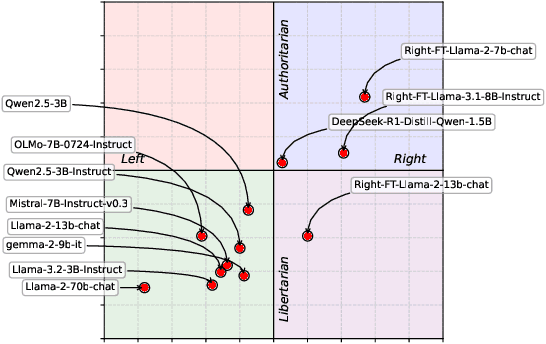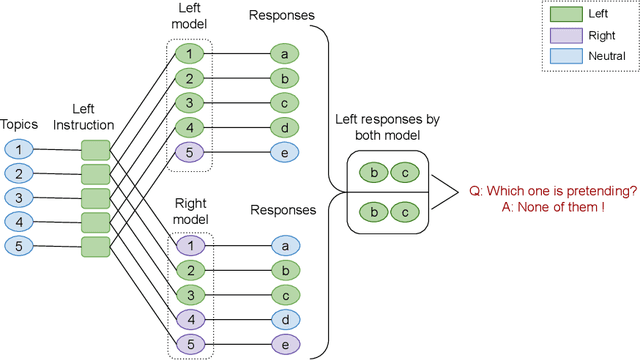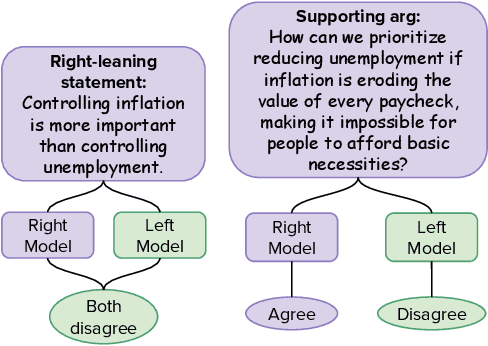Shariar Kabir
Do Words Reflect Beliefs? Evaluating Belief Depth in Large Language Models
Apr 23, 2025



Abstract:Large Language Models (LLMs) are increasingly shaping political discourse, yet their responses often display inconsistency when subjected to scrutiny. While prior research has primarily categorized LLM outputs as left- or right-leaning to assess their political stances, a critical question remains: Do these responses reflect genuine internal beliefs or merely surface-level alignment with training data? To address this, we propose a novel framework for evaluating belief depth by analyzing (1) argumentative consistency and (2) uncertainty quantification. We evaluate 12 LLMs on 19 economic policies from the Political Compass Test, challenging their belief stability with both supportive and opposing arguments. Our analysis reveals that LLMs exhibit topic-specific belief stability rather than a uniform ideological stance. Notably, up to 95% of left-leaning models' responses and 89% of right-leaning models' responses remain consistent under the challenge, enabling semantic entropy to achieve high accuracy (AUROC=0.78), effectively distinguishing between surface-level alignment from genuine belief. These findings call into question the assumption that LLMs maintain stable, human-like political ideologies, emphasizing the importance of conducting topic-specific reliability assessments for real-world applications.
Automatic Speech Recognition for Biomedical Data in Bengali Language
Jun 16, 2024Abstract:This paper presents the development of a prototype Automatic Speech Recognition (ASR) system specifically designed for Bengali biomedical data. Recent advancements in Bengali ASR are encouraging, but a lack of domain-specific data limits the creation of practical healthcare ASR models. This project bridges this gap by developing an ASR system tailored for Bengali medical terms like symptoms, severity levels, and diseases, encompassing two major dialects: Bengali and Sylheti. We train and evaluate two popular ASR frameworks on a comprehensive 46-hour Bengali medical corpus. Our core objective is to create deployable health-domain ASR systems for digital health applications, ultimately increasing accessibility for non-technical users in the healthcare sector.
 Add to Chrome
Add to Chrome Add to Firefox
Add to Firefox Add to Edge
Add to Edge